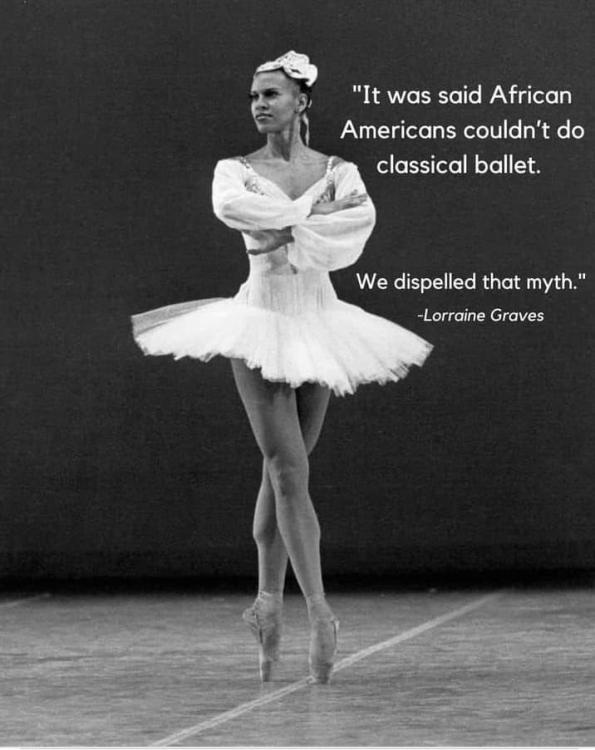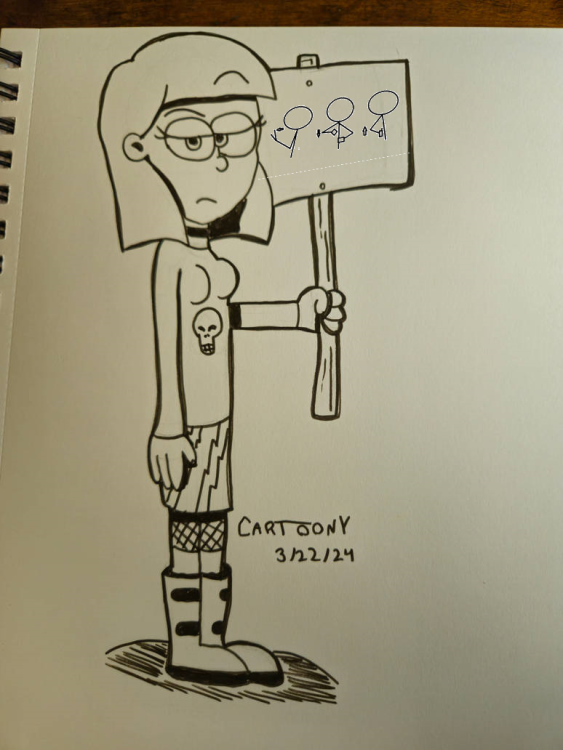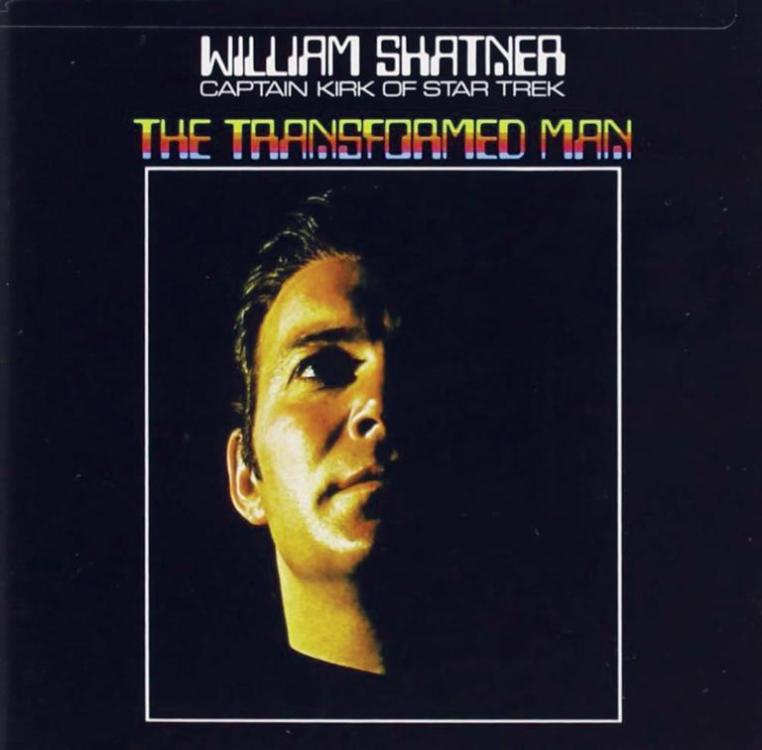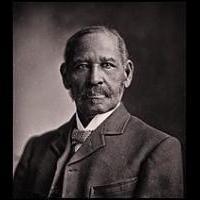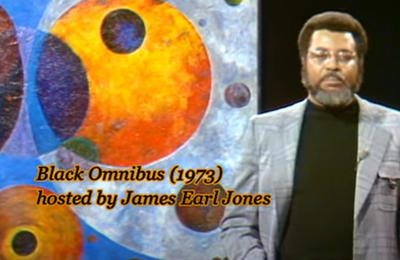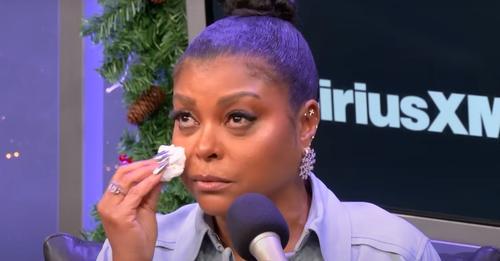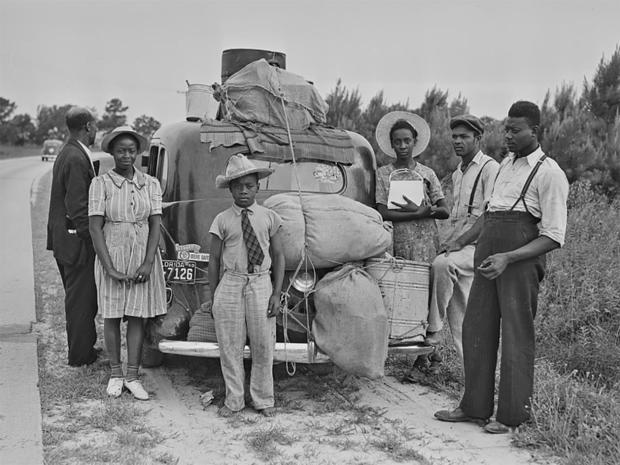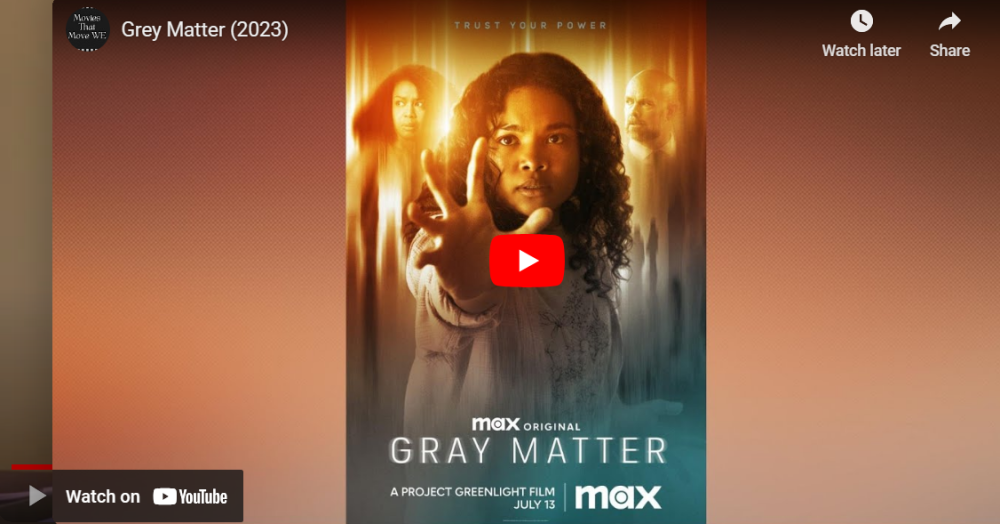Search the Community
Showing results for 'movies that move we'.
-
Response and Articles 12/19/2023
At the end of the war between the states: louisiana, south carolina, mississippi had majority black populaces, but the governments of said states had no black officials. One of the problems with some Black people in the usa is they speak very neutrally when it comes to humanity. Being verbose is a long thing, can be fatiguging, but is usually more descriptive and being more descriptive is needed when you speak of the past in humanity anywhere. The palestinean people had the majority in palestine when the zionist came but the government was completely run by members of the british empire. so...
I think a valid question exist. Beyond the law, did the 14th or 15th amendment's make the Black Enslaved or former enslaved citizens? What makes a citizen? is it the law? or is it, the communal context? I argue the history of the native american in the usa+ the black enslaved or descended of enslaved in the usa, refutes the idea that citizenry comes from the law.
The authors states tremendous progress for the black populace in what is commonly callted reconstruction in the usa, but i argue that is erroneous. First, most black people in the usa, 90% were still financially dead, no savings, no money, no land, n opportunity to gain financially. Tremendous progress I thought represented a lifting of a majority in a populace, not a financial stagnation from a majority that never had financial betterment.
The biggest problem with Black people in the usa, is the lie we tell ourselves about the commonly called Great Migration, which I call the Black fleeing. Black people flew from the south cause black people were being killed/murdered/incarcerated absent criminal activity/assaulted through the entirey of reconstruction, ask Ida B Wells and flew to the northern cities to be treated better. Most black people did not think they were going to financial betterment outside the south. I wonder where that myth comes from. Yes, some black people sought financial betterment but most wanted away from whitey.The firs thing he said that is truth, Black people always flew back to the south. But the reason was always simple. Thew white governments of the exosouth [north or west] was no better than the white governments of the south. Remember, Tulsa, which wasn't majority black like NYC, Chicago, Los ANgeles, had a government that aided in the bombing and looting of the black community in tulsa by the white community. To be blunt, NYC, Chicago, Los ANgeles were not haven cities for blacks, that is a myth. But the fact that they were not is why black people flew back.
Now what is missing. Many years ago, during Obama's first campaign I suggested Black people in the usa needed a black party of governance in the usa to focus on places where the populace of black people is largest. He speaks of Black Power in government locally in the southern states but doesn't suggest a black party of governance in said states? why? I always find it strategically silly that any community is unwilling to support organizations strictly to their benefit when they have numerical advantage.
Why do the black towns and counties of the south have representatives of andrew jackson or abraham lincoln when both have proven to be useless in being effective to making or administering legal policy to Black benefit.I emailed him my thoughts, you can do the same
chblow@nytimes.comSome post where I spoke on this
https://aalbc.com/tc/blogs/entry/194-richard-murray-creative-table/page/5/?tab=comments#comment-496
https://aalbc.com/tc/profile/6477-richardmurray/?status=1945&type=status

This photo is part of the problem. Most black people didn't own a car. This black family is financially the black one percent. This black family is looking for financial betterment but most black people owned nothing. I know for certain. Most Black people fled the south , walking, taking the train, fleeing white violence. But the narrative whites like to hear, ala magical negro is it was a simple financial move.
Charles M. Blow on reversing the Great Migration
sunday-morning
BY CHARLES M. BLOWDECEMBER 17, 2023 / 10:25 AM EST / CBS NEWS
Our commentary is from New York Times columnist Charles M. Blow, whose new HBO documentary "South to Black Power" is now streaming on Max:At the end of the Civil War, three Southern states (Louisiana, South Carolina and Mississippi) were majority Black, and others were very close to being so. And during Reconstruction, the 14th and 15th Amendments to the Constitution made Black people citizens and gave Black men the right to vote.
This led to years of tremendous progress for Black people, in part because of the political power they could now access and wield on the state level.
But when Reconstruction was allowed to fail and Jim Crow was allowed to rise, that power was stymied. So began more decades of brutal oppression.In the early 1910s, Black people began to flee the South for more economic opportunity and the possibility of more social and political inclusion in cities to the North and West. This became known as the Great Migration, and lasted until 1970.
But nearly as soon as that Great Migration ended, a reverse migration of Black people back to the South began, and that reverse migration – while nowhere near as robust of the original – is still happening today.
In 2001 I published a book called "The Devil You Know," encouraging even more Black people to join this reverse migration and reclaim the state power that Black people had during Reconstruction. I joined that reverse migration myself, moving from Brooklyn to Atlanta.
Last year, I set out to make a documentary which road-tested the idea, traveling the country, both North and South, and having people wrestle with this idea of Black power.
Here are three things I learned from that experience.
First, Black people are tired of marching and appealing for the existing power structure to treat them fairly.
Second, young Black voters respond to a power message more than to a message of fear and guilt.
And third, many of the people I talked to had never truly allowed themselves to consider that there was another path to power that didn't run though other people's remorse, pity, or sense of righteousness.
I don't know if Black people will heed my call and reestablish their majorities, or near-majorities, in Southern states. But sparking the conversation about the revolutionary possibility of doing so could change the entire conversation about power in this country, in the same way that it has changed me.
URL
https://www.cbsnews.com/news/charles-m-blow-on-reversing-the-great-migration-south-to-black-power/Different Tribes of Black people slowly becoming one takes too long to retain gains or start new gains
Alabama
Black Descendent of enslaved leaders guided the majority populace of said people to do what Maher says the palestinean should do. Based on the history of said people my advice is for the palestinean to keep fighting for the river to the sea. Yes, it may lead to a termination of palestineans. But, look at the native american in the usa. Look at the black descended of enslaved in the usa.
Two peoples who in overwhelming majority, not all, chose the path Maher suggest the palestinean choose. What did it lead to?
Whites in the USA got what they wanted, they got to win a blood feud absent having to kill the rivals in the feud, and then use that as a symbol of usa greatness. The black descended of enslaved plus native american became idolters, mostly ranked by people who are completely infatuated to the culture of those who enslaved them, completely impotent populaces concerning what can only come from collective force, beggers or crawlers in the system designed by rivals in a blood feud.
Maher is correct, as someone in this community said to me the same as other black people said many times in earshot in my offline life, the past can not be changed. But, how you plan for the future does not have to suggest the past didn't happen. And that is what Maher truly wants, what the native american of the usa did, what the black descended of the usa did, for the palestinean people to eat the crow of accepting the system of their opposer and embrace said system. Then they can have a palestinean president of israel. They can have dancing jolly musicals about the fiscally poor palestineans abused by the tyrranical israelis hurting each other for relief. They can mate with israelis and have a bunch of loving palestinean-israeli mulattoes. Yeah, I know what Maher is suggesting to the palestinean. If the palestinean is wise,better for the community to die than to become the native american of the usa.Maher on palestineans
Maher on netanyahu
IN AMENDMENT
The problem with netanyahu is like so many , he is unwilling to embrace the truth of his country,this is what hitler did that many leaders are unwilling to do. Embrace the power and violence of their government as power+ violence. The Statian empire teaches all governments that power must always be wielded as benevolence, this comes from the british imperial tradition that create the usa. But I oppose that, if you are a bully be a bully. You want to push the palestineans out, then simply do it. Trying to suggest you are legal or pure or a good person or some other thing to make a false narrative in a history book or to assuade your descendents of how they got their wealth is to me a true sin. Maher says Israel is powerful , well it is time for israel to embrace that position. And to embrace that the zionist chose this location. If the zionist were wise they would had chosen somewhere in europe but they were not, they assumed they could chose a muslim place and convert it through influence of their big brother who was started the same way, the usa. But they underestimated that not all peoples are the native american + black descended of enslaved who are weak peoples. So the zionist made the bed, the israeli has to live in it, israel will always be the enemy of its neighbors, that is the zionist legacy, netanyahu needs to embrace it and kick the palestinean out and live surrounded by enemies.
What DAvid Alan Grier said is correct, and in the situation of candy cane lane holds truth but the reason it isn't industry wide must be discussed. The problem with the narrative is, who owns is irrelevant . Grier says all need to see themselves, and he isn't wrong but black people don't see themselves in media in the usa cause black people don't own the media. Many black people in the usa seem to think not owning sports team, not owning film studios, not owning music labels, not owning car companies, not owning gun manufacturers, not owning cement makers, not owning real estate , not owning mass produce producers[corporate farms], is not a factor. Black people in the usa don't own any industry. That is why Black people are not present as we will like in any industry in the usa. IT is very simple. But the reason black people don't own is because of our history under this government , historically white, that placed us in a negative financial state where whites disallowed us from owning. Yes, starting in the 1980s, it can be said that the black populace in the usa finally was free from the yoke of the whites to grow as individuals BUT it matters when whites in the usa have opportunities to take native american land, when whites have the opportunity to rip natural resources from the earth, when whites have the opportunity to have a gilded age making fortunes for bloodlines off of acts today deemed illegal. MErit isn't unimportant. I am not knocking down merit. But merit isn't more important than opportunity but opportunity in the usa comes from ownership not merit. And ownership in the USA 99% of the time comes from advantage through an ancestor using arms, guns, or inheriting wealth from an ancestor who used arms, guns.
...
This situation reflects my point, ownership is more important than merit or equality. eddie mruphy is an owner/a producer and makes the choices, if eddie murphy didn't put grier or someone black as santa that is his choice. My point is ownership is superior to merit. Black culture/storytelling has always been present to support black people feeling apart of anything. And I know cause growing up as a kid I never felt deprived of black presence in media or in any season cause of my parents.David Alan Grier on Why His Surprise Cameo as Black Santa in ‘Candy Cane Lane’ Reminded Him of ‘Black Panther’
The film reunited him with his 'Boomerang' collaborators Eddie Murphy and director Reginald Hudlin.
BY CHRIS GARDNERPlus Icon
DECEMBER 9, 2023 11:15AMAs the Candy Cane Lane premiere red carpet heated up Nov. 28, two publicist elves worked their way down the press line to remind journalists not to spoil the big reveal from the Reginald Hudlin-directed holiday adventure.
The Prime Video release, penned by Kelly Younger, stars Eddie Murphy as a recently unemployed man on a mission to win his neighborhood’s annual Christmas home decoration contest. The hush-hush surprise happens late in the film when David Alan Grier crash-lands in an ultra-slick sleigh as (the lifted embargo permits us to announce) Black Santa Claus.
“Reggie called and told me what his idea was and I was overjoyed, man. He let me flow and egged me and Eddie on,” explained Grier of reteaming with Hudlin and Murphy with whom he teamed for the 1992 romantic comedy Boomerang. “That was over 30 years ago and all we talked about were cars, clubs, big houses, like ‘Where y’all going tonight.’ This was different because Eddie is so chill. He has kids, grandkids. He seemed really, really happy.”
As far as the significance of playing an iconic character as a Black man, Grier said the opportunity reminded him of Black Panther. “When you see yourself represented in movies or stories, it’s an affirmation that you exist, that you belong, and that you’re legitimate. That’s what people forget about to see ourselves, not just us, everybody. There’s room for all of us at the table. This is the first Christmas movie I ever did so it’s got to last a long time.”
Who knows, there may also be a sequel. Prime Video announced last week that following its debut, Candy Cane Lane quickly became the No. 1 movie worldwide on Prime Video, the most-watched am*zon MGM Studios-produced movie debut ever in the U.S. and among the top 10 worldwide film debuts ever on the service.
“The sensational debut of Eddie Murphy’s first-ever Christmas movie, Candy Cane Lane, is a true demonstration of how joyful, family-oriented stories can touch the hearts of viewers around the world,” offered Courtenay Valenti, head of film, streaming, and theatrical at am*zon MGM Studios.
Grier is also counting his blessings this holiday season. “I’m going to tell you right now, I’m 67 years old. I did not think that my career would be here at my age. I have more work than I can even say yes to. My career is booming and I feel like I finally figured out what I’m doing, so I’m only getting better and better. We’ll see what happens.”
the american society of magical negroes trailer
For centuries, there has been a society hidden in plain sight, working in secret to protect Black people from harm. It’s called THE AMERICAN SOCIETY OF MAGICAL NEGROES.
A new satire from writer/director Kobii Libi and an official selection of Sundance 2024. Only in theaters March 22.guiliani as mayor of new york made policy intentionally harming the black populace in nyc, that being the selling of nyc properties that black people lived in, properties nyc owned because the real estate industry failed which many forget... is his actions toward two black female poll workers a shock to black new york city dwellers? The answer is no.
kamala harris broke the record on tiebreak votes but is the quality of her tiebreaks showing she is thoughtful or functional?
https://www.blackenterprise.com/kamala-harris-200-year-record-tiebreakers-cast/Question, should black people in the south look to reboot the majority of historical black colleges that went under?
For example the Conroe Normal and Industrial College faculty (c. 1903)
https://en.wikipedia.org/wiki/Conroe_Normal_and_Industrial_College
referal
Mandela on a Black countries government
https://www.youtube.com/watch?v=i5TiUhhm7cQor
Please read MEdical Apartheid by Harriet Washington
https://www.kobo.com/us/en/ebook/medical-apartheid
the referral
https://www.msn.com/en-us/health/other/smithsonian-targeted-dc-s-vulnerable-to-build-brain-collection/ar-AA1lukXG
-
“Unbury the Future”: Martha Wells’ Full Speech from the 2017 World Fantasy Awards
Martha Wells
Tue Nov 7, 2017 10:00am
The convention defines “secret history” as tales which uncover an alternative history of our world with the aid of fantasy literary devices. Like alternate histories or secret tales of the occult.A secret history might also mean a lost history, something written in a language that died with the last native speaker. It might mean something inaccessible, written in a medium too fragile to last. Like the science fiction and fantasy stories published in U.S. newspapers in the late 1800s. We know a few of those authors, like Aurelia Hadley Mohl [ https://tshaonline.org/handbook/online/articles/fmoae ] and Mollie Moore Davis [ https://en.wikipedia.org/wiki/Mollie_Evelyn_Moore_Davis ] , but how many others were there? Those stories were proof that everybody has always been here, but the paper they were printed on has turned to dust.
We might know that C.L. Moore [ https://en.wikipedia.org/wiki/C._L._Moore ] wrote for Weird Tales, but I grew up thinking she was the only one, that a woman fantasy writer from that time period was like a unicorn, there could only be one, and that she was writing for an entirely male audience. But there were plenty of other women, around a hundred in Weird Tales alone, and many of them, like Allison V. Harding [ https://tellersofweirdtales.blogspot.com/2011/05/who-was-allison-v-harding.html ] and Mary Elizabeth Counselman [ http://www.innsmouthfreepress.com/blog/summer-of-unknown-writers-mary-elizabeth-counselman/ ] , didn’t bother to conceal their identity with initials.
Weird Tales had women poets, a woman editor named Dorothy McIlwraith, women readers who had their letters printed in the magazine. There were women writing for other pulps, for the earlier Dime Novels, lots of them. Including African American Pauline Hopkins [ https://en.wikipedia.org/wiki/Pauline_Hopkins ] , whose fantasy adventure novel appeared in a magazine in 1903.These women were there, they existed. Everybody knew that, up until somehow they didn’t. We know there were LGBT and non-binary pulp writers, too, but their identities are hidden by time and the protective anonymity of pseudonyms.
Secrets are about suppression, and history is often suppressed by violence, obscured by cultural appropriation, or deliberately destroyed or altered by colonization, in a lingering kind of cultural gaslighting. Wikipedia defines “secret history” as a revisionist interpretation of either fictional or real history which is claimed to have been deliberately suppressed, forgotten, or ignored by established scholars.
That’s what I think of when I hear the words “secret histories.” Histories kept intentionally secret and histories that were quietly allowed to fade away.
The women writers, directors, and producers of early Hollywood were deliberately erased from movie history. Fifty percent of movies between 1911 and 1928 were written by women. In the 1940s there were a last few survivors at MGM, but their scripts were uncredited and they were strongly encouraged to conceal what they were working on, and not to correct the assumption that they were secretaries.
With the internet, it shouldn’t be possible for that to happen again. But we hear an echo of it every time someone on Reddit says “women just don’t write epic fantasy.”
You do the work, and you try to forget that there are people wishing you out of existence. But there are a lot of means of suppression that are more effective than wishing.
Like in 1974 when Andre Norton discovered the copyeditor on her children’s novel Lavender Green Magic had changed the three black main characters to white.
Or like in 1947, when African American writer and editor Orrin C. Evans was unable to publish more issues of All-Negro Comics [ https://en.wikipedia.org/wiki/All-Negro_Comics ] because there was mysteriously no newsprint available for him to purchase.
Or like all the comics suppressed by the Comics Code Authority in 1954, which acted to effectively purge comics of people of color and of angry violent women, whether they were heroes or villains, or of any perceived challenge to the establishment. Like the publisher Entertaining Comics, which was targeted and eventually driven out of business for refusing to change a story to make a black astronaut white.
There’s an echo of that suppression when DC bans a storyline [ http://www.hollywoodreporter.com/heat-vision/batwoman-authors-exit-claim-dc-621274 ] where Batwoman proposes marriage to her girlfriend. And again when Marvel publishes a storyline that makes us think Captain America is a Nazi. When we’re supposed to forget that his co-creator Jack Kirby was Jewish, that he was an Army scout in World War II, that he discovered a concentration camp, that he was personally threatened by three Nazis at the New York Marvel office for creating a character to punch Hitler. (Maybe the Nazis would like to forget that when Kirby rushed downstairs to confront them, they ran away.)
There’s been an active level of suppression in movies since movies were invented. At least a white woman writer and director like Frances Marion [ https://en.wikipedia.org/wiki/Frances_Marion ] could win two Academy Awards before she was banished from history, but that wasn’t the case for her contemporary Oscar Micheaux [ https://en.wikipedia.org/wiki/Oscar_Micheaux ] . An African American, Micheaux worked as a railway porter before he wrote, directed, and produced at least 40 films in the black movie industry that was entirely separate from white Hollywood.
That kind of suppression is still alive and well, and we see it when the movie about the Stonewall riots shows the resistance against police attacks through the viewpoint of young white guys and ignores Marsha P. Johnson and Sylvia Rivera [ https://sites.psu.edu/womeninhistory/2016/10/23/the-unsung-heroines-of-stonewall-marsha-p-johnson-and-sylvia-rivera/ ] . Or when Ghost in the Shell features a white actress [ https://www.tor.com/2016/04/20/why-are-we-still-white-washing-characters/ ] instead of Japanese.
We’ve forgotten Sessue Hayakawa [ https://en.wikipedia.org/wiki/Sessue_Hayakawa ] , a Japanese actor who was one of the biggest stars in the silent film era of Hollywood, who was well known as a broodingly handsome heartthrob.
Sometimes history isn’t suppressed, sometimes it just drifts away. The people who lived it never expected it to be forgotten, never expected their reality to dissolve under the weight of ignorance and disbelief.
Hidden Figures by Margot Lee Shetterly unburied the history of the African American women of early NASA, of Katharine Johnson, Mary Jackson, Dorothy Vaughn and the hundreds like them. They were just forgotten over the years, as the brief time when women’s work meant calculating launch and landing trajectories and programming computers passed out of memory. Like the Mercury 13 [ https://en.wikipedia.org/wiki/Mercury_13 ] , the “Fellow Lady Astronaut Trainees” in the 1960s, all pilots, all subjected to the same tests as the men. They retired, they went away, everyone forgot them.
Sometimes when they’re remembered, their contributions are minimized, like when a photo caption calls bacteriologist Dr. Ruby Hirose a “Japanese girl scientist” or labels Bertha Pallan, who was one of the first Native American women archeologists, as an “expedition secretary.” Like the photo post on Tumblr that over and over again, identified Marie Curie as a “female laboratory assistant.” Anybody can be disappeared.
We think we remember them, but then we’re told over and over again, all over the internet, that women don’t like math, can’t do science. That’s the internet that’s supposed to preserve our history, telling us we don’t exist.
Mary Jane Seacole was a Jamaican nurse who helped the wounded on the battlefields of the Crimean War, just like Florence Nightingale. Sister Rosetta Tharpe was the mother of rock and roll. Sophia Duleep Singh was a prominent suffragette in the UK. They’re all in Wikipedia, but you can’t look them up unless you remember their names.
The women who worked in the Gibson Guitar factory during WWII were deliberately erased, their existence strenuously denied, despite the evidence of a forgotten group photo that the company still would like to claim never existed.
Jackie Mitchell, seventeen years old, struck out Babe Ruth and Lou Gehrig in an exhibition game in 1931. Her contract was almost immediately voided by the baseball commissioner. Baseball was surely too strenuous for her.
In 1994, Gregory Corso was asked, “Where are the women of the Beat Generation?” He said, “There were women, they were there, I knew them, their families put them in institutions, they were given electric shock.” Some of them survived, like Diane di Prima, and Hettie Jones.
Book burning draws too much attention. In science fiction and fantasy, in comics, in media fandom, everybody was always here, but we have been disappeared over and over again. We stumble on ourselves in old books and magazines and fanzines, fading print, grainy black and white photos, 16 millimeter film, archives of abandoned GeoCities web sites. We remember again that we were here, they were here, I saw them, I knew them.
We have to unearth that buried history. Like Rejected Princesses [ http://www.rejectedprincesses.com/ ] , by Jason Porath, which chronicles the women of history too awesome, offbeat, or awful to be animated. Or Nisi Shawl’s series the Expanded Course in the History of Black Science Fiction [ https://www.tor.com/tag/history-of-black-science-fiction/ ] . Or Malinda Lo’s LGBTQ YA By the Numbers [ https://www.malindalo.com/blog/2017/10/12/lgbtq-ya-by-the-numbers-2015-16 ] posts. Or Medieval POC [ https://twitter.com/medievalpoc?ref_src=twsrc%5Egoogle%7Ctwcamp%5Eserp%7Ctwgr%5Eauthor ] , sharing information about people of color in European art history. Like Eric Leif Davin in his book Partners in Wonder: Women and the Birth of Science Fiction. Like Cari Beauchamps’ book Without Lying Down, about the women writers, directors, and producers of early Hollywood. Like Catherine Lundoff’s series on the history of LGBT Science Fiction and Fantasy. Like Saladin Ahmed’s articles on the early history of comics or Jaime Lee Moyer’s article on the erasure of early women scientists[ http://www.jaimeleemoyer.com/we-all-know-what-they-did-to-witches/ ] . Like all the librarians and researchers and writers and archivists and fans who work to unbury our past so we have a chance to find our future.
And we have to continue to move forward toward that future in the fantasy genre, like the nominees on this year’s World Fantasy Award ballot, like all the other fantasy novels and short fiction last year that pushed the envelope a little further, or pushed it as far as it would go.
We have to break the barriers again and again, as many times as it takes, until the barriers are no more, and we can see the future our secret history promised us.
Author’s note: I’d like to thank Kate Elliott for reading an early draft of this, and for her help, inspiration, and encouragement.
Editor’s note: Martha Wells’ toastmaster speech was delivered at the World Fantasy Convention on November 5, 2017 and is reproduced here with the author’s permission; a few minor edits have been made and links have been added to the original text for additional context/clarity.
Martha Wells is a science fiction and fantasy writer, whose first novel was published in 1993. Her most recent series are The Books of the Raksura, for NightShade Books, and The Murderbot Diaries for Tor.com. Besides many fantasy novels, she has also written short stories, media tie-ins for Star Wars and Stargate Atlantis, YA fantasies, and non-fiction.
MY THOUGHT
But I think the greater question is not about presence, but action. "We" have always been here is the truth but what do "We" do when lifetimes of merit don't force "Them" to honor or treat "We" at the least equally?




